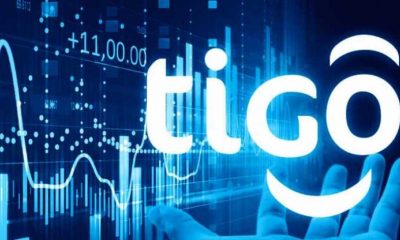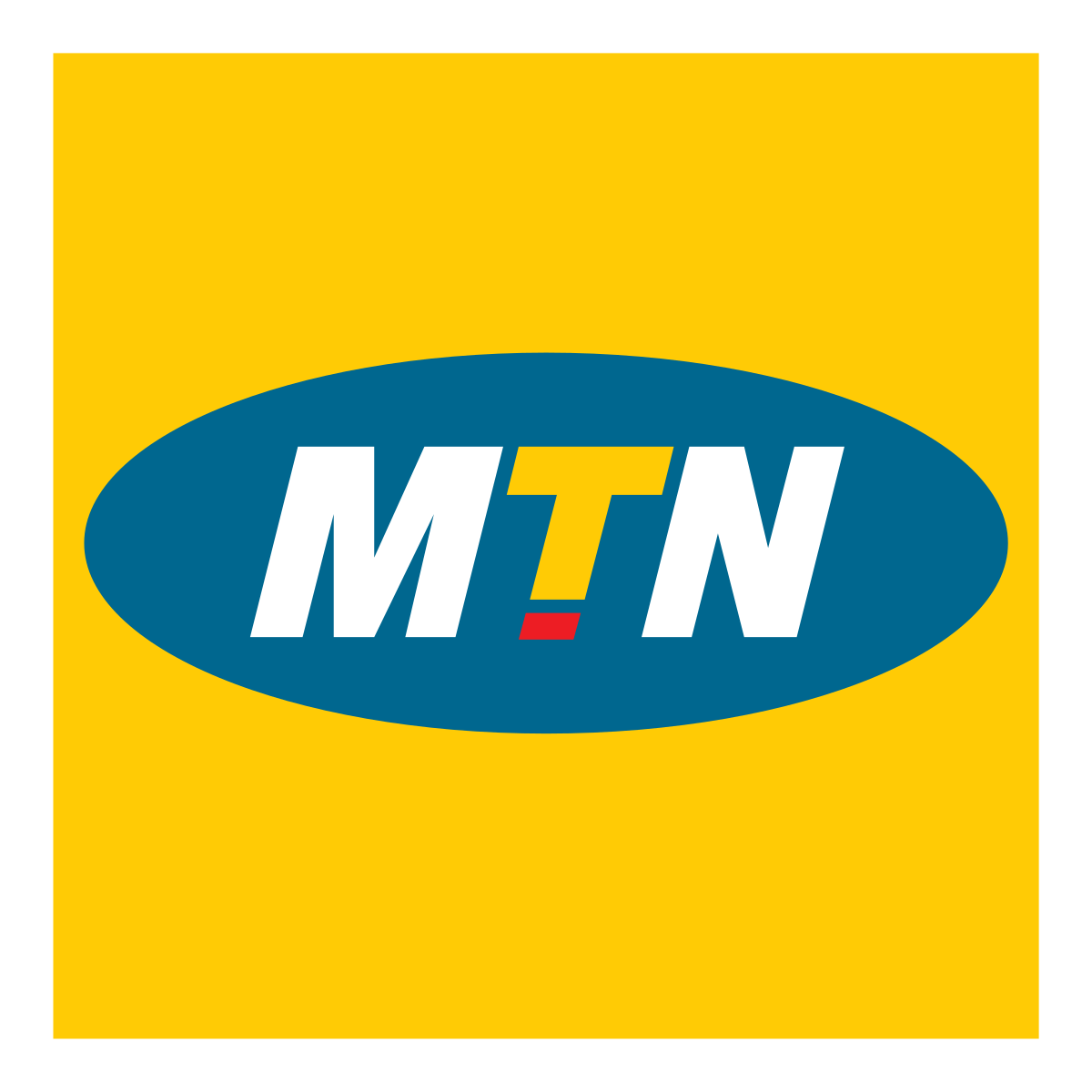Economy
How 5G Will Impact Nigeria’s Business Sector in 2021?

5G technology has divided public opinion across the globe. Stories of international data farming, societal controls and even claims of involvement in creating the current COVID-19 pandemic have tarnished its reputation in recent months.
As the conspiracy theories subside, the world pushes forward with plans to implement this game-changing tech and the list of “5G ready” countries looks set to boom in 2021 with Nigeria poised proudly at the front of the queue.
What is 5G?
The fifth-generation network is a wireless connection that makes use of a combination of large radio towers and smaller transmitters to bring an ultra-high frequency signal within reach of populated areas.
Using this signal, entire nations can effectively be transformed into a giant wireless network to connect everyone and everything in its path.
5G technology has been in the pipeline since 2011 when studies of millimetre waves led to research into what is now known as 5G. It’s taken several years of research and testing to get us to this point, but it’s now billed to become the telecom industry standard during the next 20 years.
The production of 5G-ready devices is still very much in its infancy and is certainly playing catch up. Current mobile phones with 4G capabilities aren’t physically able to use the network and neither are the vast majority of tech products in people’s homes.
The race is now on to connect everyone and everything to one super network that will transform businesses not only in terms of day-to-day efficiency but also in the way that user activity data can be relayed and used to enhance marketing methods.
How will 5G benefit business in Nigeria?
As with all countries, Nigerian businesses will use the new tech to transform their everyday activity into a more streamlined version of itself.
In the wake of the current pandemic, remote working is set to remain on the up and 5G’s ability to provide incredibly low latency rates means that online meetings will become as fast and crisp as their face-to-face counterparts.
Not only will low latency improve everyday activities around the office, but it will also mean big advances in the reliability of robotics. Self-drive cars, for example, rely on real-time reactions to adjust to sudden changes in the immediate environment and 5G will help to eliminate safety concerns in this area.
Lighting quick internet connection will also help enhance the online gaming community and pave the way for Nigeria to build on its recent success in La Cup D’Africana tournament where they took the top spot in the biggest PlayerUnknown’s Battleground (PUBG) competition on the continent.
Online casinos are another key area of growth that stands to make big gains from an optimised user experience thanks to 5G technology.
Online gambling in Nigeria is regulated by the National Lottery Regulatory Commission, but be aware that current laws make no provision for online casinos based in other countries so, always use a trusted source to find legitimate organisations such as the casinos that can be found at casinosnotongamstop.xyz.
The housing sector is on course to become an unlikely beneficiary from 5G networks in the coming years as advances in VR, AR and 3D technology will be used to present realistic walkthroughs and detailed presentations of property that will bring real estate marketing into a new era of high-tech marketing.
Demand for property in Nigeria has doubled over the last couple of years and this could be eased dramatically as the production of housing materials becomes more efficient and streamlined in the wake of new network capabilities.
When will 5G be available in Nigeria?
The long-awaited final announcement from the Nigerian Communications Commission (NCC) looks set to be upon us shortly as discussions with key stakeholders are entering their final stages.
After trials were rolled out during 2019, the NCC has made use of a consultation period to assess the health implications and environmental impact of the new 5G infrastructure. No huge concerns have been raised and the final piece of the puzzle is largely a question of finances as the commission clarifies who the major players will be in this market.
Although no fixed date has been set, it does look to be increasingly likely that early 2021 will see the country join the super-fast internet elite.
Economy
CAC Deregisters 400,000 Inactive Businesses in 2025

By Adedapo Adesanya
The Corporate Affairs Commission (CAC) has deregistered more than 400,000 inactive companies from the corporate registry in 2025 as part of reforms aimed at strengthening transparency, protecting the economy and restoring investor confidence.
The Registrar-General of the CAC, Mr Hussaini Magaji, disclosed this on Saturday in Abuja during the commission’s monthly fitness walk, which was organised as part of the activities marking its 35th anniversary.
Mr Magaji said the affected entities were largely companies that had failed to file statutory annual returns for years and were no longer operational, warning that such firms posed serious risks to economic integrity.
He said, “In 2025 alone, we deregistered over 400,000 companies from our records. These were largely companies that had become inactive and failed to meet statutory obligations, including filing annual returns.
“Such entities pose threats to economic operations. Cleaning up the register was necessary to build confidence and ensure that Nigeria has a credible and reliable corporate registry,” he stated.
Mr Magaji explained that a transparent and up-to-date register was critical to attracting both local and foreign investment, as well as preventing the misuse of corporate structures for illicit activities.
The CAC boss described the anniversary fitness walk as symbolic, noting that it reflected the commission’s resilience, teamwork and institutional evolution since its establishment in 1991.
He recalled that the commission began operations as a largely manual agency, once confined to a single office in Garki, Abuja, but has since evolved into a fully digital, end-to-end service provider with global reach.
“The CAC has come a long way, from manual operations in one location to a fully digital organisation. Today, our services are available anywhere, anytime, 24/7. We are the only government agency providing end-to-end digital services,” he stated.
According to him, the commission’s digital transformation has significantly supported the Federal Government’s ease-of-doing-business reforms, eliminating the need for physical visits to CAC offices to register or manage businesses.
“You can register and manage your business from your room without stepping into any CAC office. That is what ease of doing business truly means,” he added.
As part of its support for small businesses, Mr Magaji disclosed that the commission partnered with the Small and Medium Enterprises Development Agency of Nigeria to facilitate the free registration of 250,000 MSMEs in 2025.
He explained that the registrations were deliberately channelled through SMEDAN to ensure beneficiaries also received training and capacity-building support, adding that improved welfare, timely payment of entitlements and clear career progression had boosted staff morale and service delivery.
Economy
NGX Market Cap Surpasses N110trn as FY 2025 Earnings Impress Investors

By Dipo Olowookere
Investors at the Nigerian Exchange (NGX) Limited have continued to show excitement for the full-year earnings of companies on the exchange so far.
On Friday, Customs Street further appreciated by 1.01 per cent as more organization released their financial statements for the 2025 fiscal year.
During the session, traders continued their selective trading strategy, with the energy sector going up by 2.47 per cent at the close of business despite profit-taking in the banking counter, which saw its index down by 0.11 per cent.
Yesterday, the insurance space grew by 2.16 per cent, the industrial goods segment expanded by 1.70 per cent, and the consumer goods industry jumped by 0.42 per cent.
Consequently, the All-Share Index (ASI) increased by 1,722.13 points to 171,727.49 points from 170,005.36 points, and the market capitalisation soared by N1.106 trillion to N110.235 trillion from the N109.129 trillion it ended on Thursday.
Business Post reports that there were 59 appreciating stocks and 19 depreciating stocks on Friday, representing a positive market breadth index and strong investor sentiment.
The trio of Omatek, Deap Capital, and NAHCO gained 10.00 per cent each to sell for N2.64, N6.82, and N136.40 apiece, as Zichis and Austin Laz appreciated by 9.98 per cent each to close at N6.72 and N5.40, respectively.
Conversely, The Initiates depreciated by 9.74 per cent to N19.45, DAAR Communications slumped by 7.32 per cent to N1.90, United Capital crashed by 6.55 per cent to N18.55, Coronation Insurance lost 5.71 per cent to quote at N3.30, and First Holdco shrank by 5.53 per cent to N47.00.
The activity chart showed an improvement in the activity level, with the trading volume, value, and number of deals up by 33.77 per cent, 93.27 per cent, and 10.63 per cent, respectively.
This was because traders transacted 953.8 million shares worth N43.1 billion in 51,005 deals compared with the 713.0 million shares valued at N22.3 billion traded in 46,104 deals a day earlier.
Fidelity Bank was the most active with 92.4 million units sold for N1.8 billion, Chams transacted 69.2 million units valued at N310.9 million, Deap Capital exchanged 59.1 million units worth N382.7 million, Access Holdings traded 57.2 million units valued at N1.3 billion, and Tantalizers transacted 48.6 million units worth N228.2 million.
Economy
Naira Retreats to N1,366.19/$1 After 13 Kobo Loss at Official Market

By Adedapo Adesanya
The value of the Naira contracted against the United States Dollar on Friday by 13 Kobo or 0.01 per cent to N1,366.19/$1 in the Nigerian Autonomous Foreign Exchange Market (NAFEX) from the previous day’s value of N1,366.06/$1.
According to data from the Central Bank of Nigeria (CBN), the Nigerian currency also depreciated against the Pound Sterling in the same market window yesterday by N2.37 to N1,857.75/£1 from the N1,855.38/£1 it was traded on Thursday, and further depleted against the Euro by 57 Kobo to close at N1,612.52/€1 versus the preceding session’s N1,611.95/€1.
In the same vein, the exchange rate for international transactions on the GTBank Naira card showed that the Naira lost N8 on the greenback yesterday to N1,383/$1 from the previous day’s N1,375/$1 and at the black market, the Nigerian currency maintained stability against the Dollar at N1,450/$1.
FX analysts anticipate this trend to persist, primarily influenced by increasing external reserves, renewed inflows of foreign portfolio investments, and a reduction in speculative demand.
In the short term, stability in the FX market is expected to continue, supported by policy interventions and improving market confidence.
Nigeria’s foreign reserves experienced an upward trajectory, increasing by $632.38 million within the week to $46.91 billion from $46.27 billion in the previous week.
The Dollar appreciation this week appears to be largely technical, serving as a correction to the substantial losses experienced from mid- to late January.
Meanwhile, the cryptocurrency market slightly appreciated, with Bitcoin (BTC) climbing near $68,000, up nearly 5 per cent since hitting $60,000 late on Thursday after investor confidence in crypto’s utility as a store of value, inflation hedge, and digital currency faltered.
The sell-off extended beyond crypto, with silver plunging 15 per cent and gold sliding more than 2 per cent. US stocks also fell.
The latest recoup saw the price of BTC up by 4.7 per cent to $67,978.96, as Ethereum (ETH) appreciated by 6.3 per cent to $2,021.10, and Ripple (XRP) surged by 9.5 per cent to $1.42.
In addition, Solana (SOL) grew by 7.3 per cent to $85.22, Cardano (ADA) added 6.1 per cent to trade at $0.2683, Dogecoin (DOGE) expanded by 5.4 per cent to $0.0958, Litecoin (LTC) rose by 5.2 per cent to $53.50, and Binance Coin (BNB) jumped by 2.3 per cent to $637.79, while the US Dollar Tether (USDT) and the US Dollar Coin (USDC) traded flat at $1.00 each.
-

 Feature/OPED6 years ago
Feature/OPED6 years agoDavos was Different this year
-
Travel/Tourism9 years ago
Lagos Seals Western Lodge Hotel In Ikorodu
-

 Showbiz3 years ago
Showbiz3 years agoEstranged Lover Releases Videos of Empress Njamah Bathing
-

 Banking8 years ago
Banking8 years agoSort Codes of GTBank Branches in Nigeria
-

 Economy3 years ago
Economy3 years agoSubsidy Removal: CNG at N130 Per Litre Cheaper Than Petrol—IPMAN
-

 Banking3 years ago
Banking3 years agoSort Codes of UBA Branches in Nigeria
-

 Banking3 years ago
Banking3 years agoFirst Bank Announces Planned Downtime
-

 Sports3 years ago
Sports3 years agoHighest Paid Nigerian Footballer – How Much Do Nigerian Footballers Earn



















